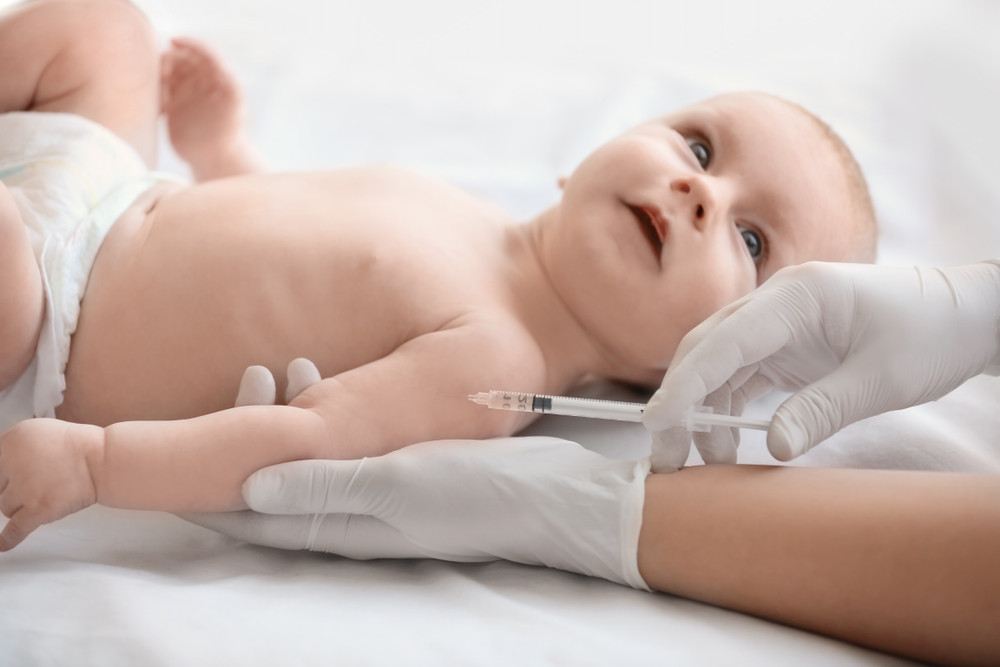When your child is suffering from an inflammation of the meninges, i.e., the membranes which protect the baby’s spinal cord and brain, this means that they have meningitis. Although this infection is relatively uncommon, it is very dangerous for infants to continue reading the following article to learn more.
Clinics that offer consultations and guidance regarding meningitis in babies are various. Still, Worldwide Pediatrics Group is one of the most popular due to the high quality of its services and its experienced staff. High-quality services of general pediatric care in Plantation and Doral, Florida, are what you need to search for if you want to get comprehensive, accurate diagnoses and care for your child.
Experts are not sure why meningitis in infants occurs, but it is most probably in close connection to the fragility of their immune systems. Also, meningitis can occur in people of any age, but children up to two years old are most at risk.
Be aware that without proper diagnosis and treatment, there is a risk that the child’s brain will get permanently damaged or that they might even pass away. Make sure you are aware of all the potential signs of meningitis in babies so that you can react promptly.
What Is Meningitis in Infants?
The most popular definition of meningitis is an infection of the membranes under the skull, which protects and covers the baby’s brain and spinal cord. When the membranes are infected, they swell up and can lead to serious, irreversible, permanent damage and other severe conditions.
Premature babies and infants under two can be very exposed to contracting meningitis, so in today’s article, we will discuss more on how to recognize the condition, cure it and protect your child. Although it might sound stressful and scary, there are proper treatment paths that can help your child, so make sure you are well-informed beforehand.
There are two types of meningitis, based on what causes the inflammation:
- Bacterial meningitis
- Viral meningitis
Bacterial meningitis in babies is rare, but it can have severe consequences if it occurs. This type of meningitis in infants most often affects babies under the age of two. The bacteria causing the infection can very often be found in the mouth of healthy children, but the infection occurs only if the bacteria enter the bloodstream.
Seven out of ten children fully recover if the condition is diagnosed on time. It is important also to state that around 20% – 50% of children who survive the condition face severe problems such as hearing loss, brain damage, or hydrocephalus, i.e., extra fluid in the brain. If you do not put your child on a treatment path on time, there are high chances of death, so make sure you are aware of the condition and options.
On the other hand, viral meningitis in newborns is not perceived to be as serious of a condition as the bacterial type. It is mainly caused by viruses, and children that have a healthy immune system recover from it on their own. The problem is that if viral meningitis in newborns occurs before the baby turns three months old, it can have serious consequences.

What Causes Meningitis in Babies?
When it comes to the question of what causes meningitis in babies, the two most common causes are bacteria and viruses. Although doctors and experts assume that the development of this condition mostly depends on the strength of the infant’s immune system, there is still much research to be done in this field.
Viruses that are to be blamed for common colds, flu, diarrhea, or mumps are the same ones that cause viral meningitis. Regarding bacteria, the most common cause are E. coli, group B streptococcus, listeria monocytogenes, streptococcus pneumonia, Neisseria meningitides, syphilis, tuberculosis, etc. Bacteria can also spread due to an infection of the child’s ear or nose or a serious head injury.
From time to time, the bacteria can be transferred during labor and delivery because doctors use sharp tools like forceps and make cuts in the infant’s scalp. The mothers can also pass the bacteria to the baby during the delivery, so it is advised to check the mother for group B streptococcus before giving birth.
Meningitis Symptoms in Infants
The signs of meningitis in babies might not be that alarming initially. Many babies just seem a little tired and irritated. As meningitis can develop very quickly, it is important to monitor your baby for the following symptoms:
- Fever
- Soft spot on the head
- Cold feet and hands
- Warm torso
- Chills
- Stiffness in the neck
- Refusing to eat
- Persistent vomiting
- Crying and irritability when being picked up
- Dark rash on the body
- Constant sleeping
- Continuous crying
- Fast breathing
- Headaches
- Sensitivity to light
- Seizures
- Yellow eyes and skin
If you doubt that your baby might be suffering from meningitis symptoms in infants, please contact your doctor as soon as possible to schedule a consult.
Prevention
The most common approach to prevention when it comes to meningitis is vaccination against bacteria and viruses that might cause meningitis in infants in the first place. Those can include H. influenza type B vaccine, pneumococcal conjugate vaccine, meningococcal vaccine, MMR vaccine, etc. Talk to your chosen doctor about the options when it comes to prevention.

Diagnosis and Treatment of Meningitis in Babies
There are three most common tests done when a doctor suspects the child might be suffering from meningitis:
- Blood culture, where the blood is taken to identify a pathogen that is responsible for the infection
- Spinal tap or lumbar puncture, when a hollow needle is inserted into the lower back of the child to extract a sample of the spinal fluid, which gets tested for infection and diagnosis confirmation
- Computerized tomography or a CT scan is used to get imaging of body parts and make a more accurate diagnosis.
When it comes to treating meningitis in infants, it largely depends on whether the child is suffering from a bacterial or viral type of meningitis.
Children who are facing bacterial meningitis often spend a few days in the hospital, getting IV antibiotics and a lot of fluids. Also, some medical professionals advise steroids to help with the swelling. The earlier the treatment starts, the greater the child’s chances to fully recover. The antibiotics are most often given up to 21 days, and the treatment plan also depends on how old the child is.
If the infant is suffering from viral meningitis, they often get better on their own in seven to ten days, without any antibiotics or visits to the hospital. Most parents treat viral meningitis in infants as the flu, so the child just rests more, drinks more fluids, and gets some painkillers if needed. If the viral infection is caused by herpes simplex virus, the situation is more complex, and the child will require antibiotics and hospitalization.
Visit Us!
Meningitis in babies can be severe if not treated on time. Make sure you contact our specialists if you start noticing meningitis symptoms in infants because the earlier you call, the more we can do for you. We are here, so contact us!



